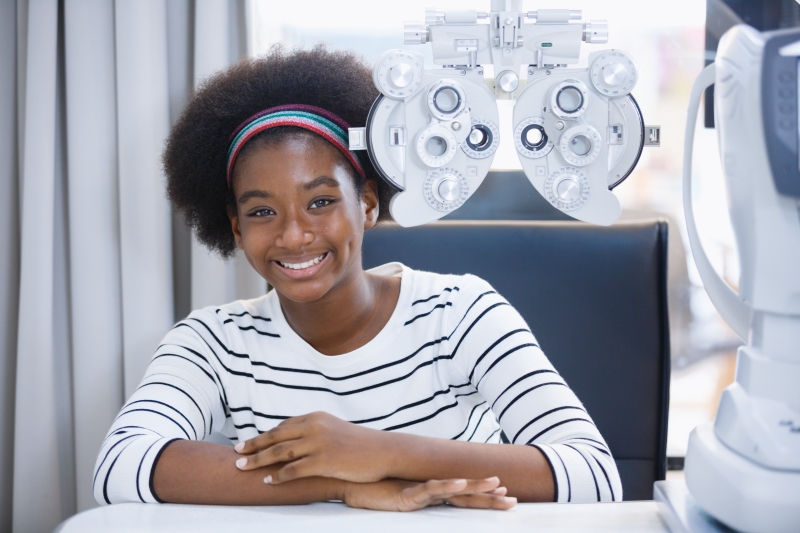
It's about more than just blurry vision.
Eye exams are vital to your overall health.
In addition to assessing your visual acuity, your eye care provider will test for common eye diseases, assess how your eyes are functioning together, and more.
Serious health issues like diabetes and high blood pressure are often first detected during an eye exam.
Don't put it off - request your comprehensive eye exam today.
What does a comprehensive eye exam include?
Your optometrist will determine what tests are needed based on your medical history.
However, most comprehensive eye exams include the following:
- Visual acuity to test the sharpness of your vision, usually with an eye chart
- Refraction to determine your exact eyeglass prescription
- Slit lamp to check for common eye diseases and conditions
- Retinal photo screenings to test for overall health of the retina
- Tonometry to test for glaucoma
- Ophthalmoscopy to examine the optic nerve, retina, and blood vessels
How often should I get a comprehensive eye exam?
Most eye care professionals recommend yearly eye exams. But it depends on your age, risk factors, and whether or not you wear corrective lenses.
The American Optometric Association (AOA) recommends children have their eyes examined at 6 months old, three years old, at the start of school, and every year until age 18.
For adults, the AOA recommends a comprehensive eye exam annually for ages 18 and older. At Rock Island Optometric Center, we work with patients ages 5 and older.
What about contact lens exams?
A comprehensive eye exam can include a contact lens fitting, with an additional fee for the contact lens evaluation.
Just let us know when you schedule your appointment, and we'll make sure you are taken care of.
Make healthy vision a priority in your life and in the lives of the ones you love.
Call one of our convenient locations to schedule an appointment.
